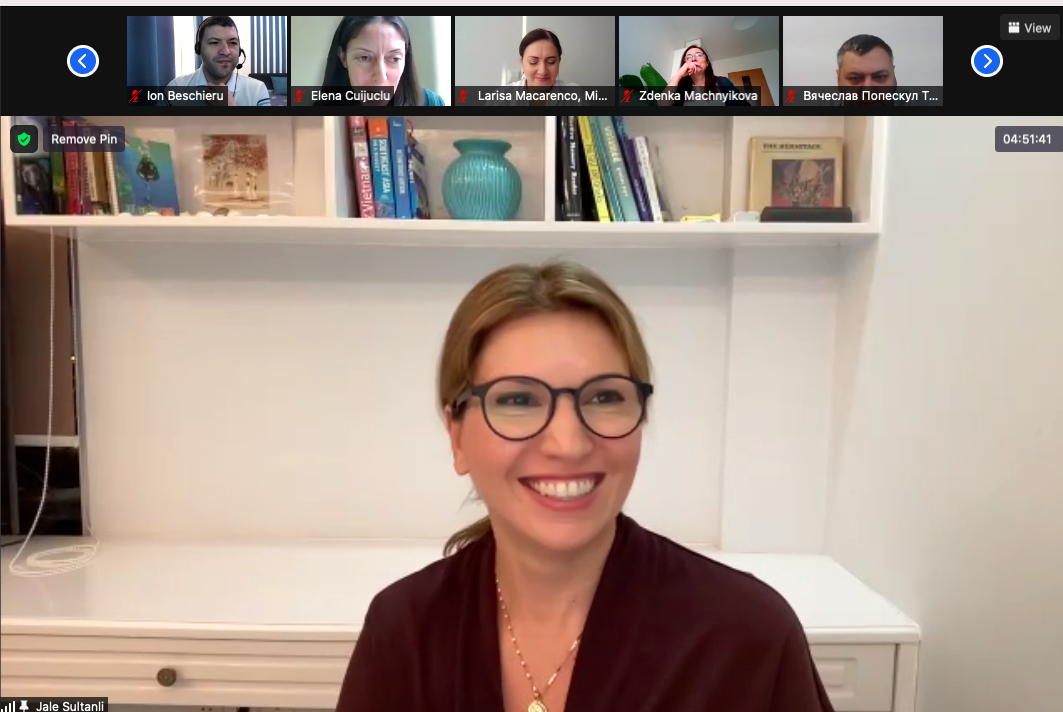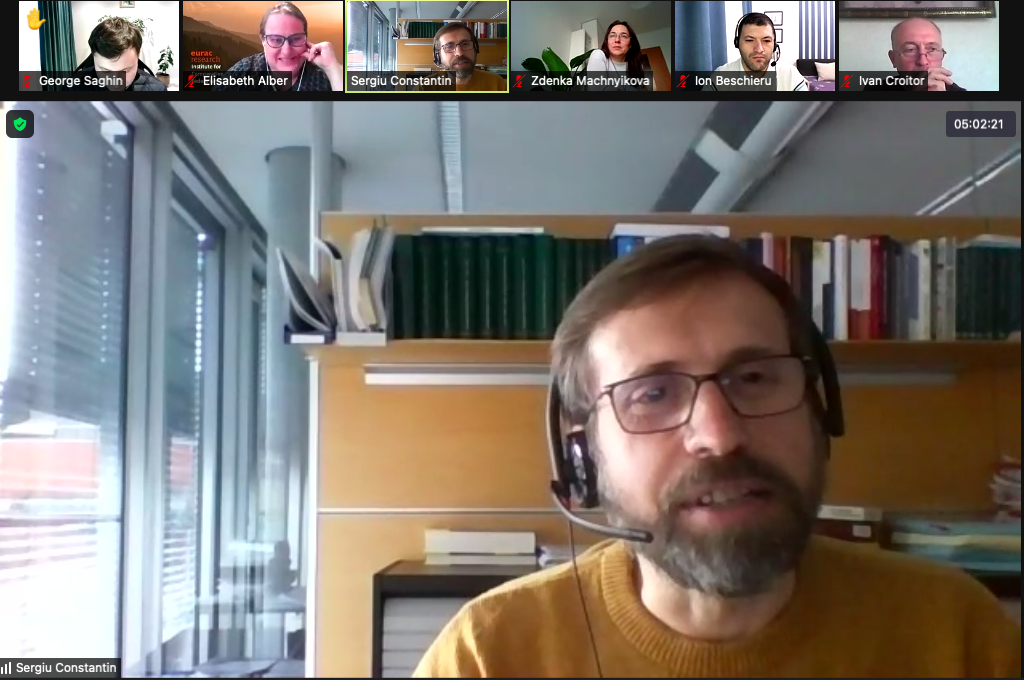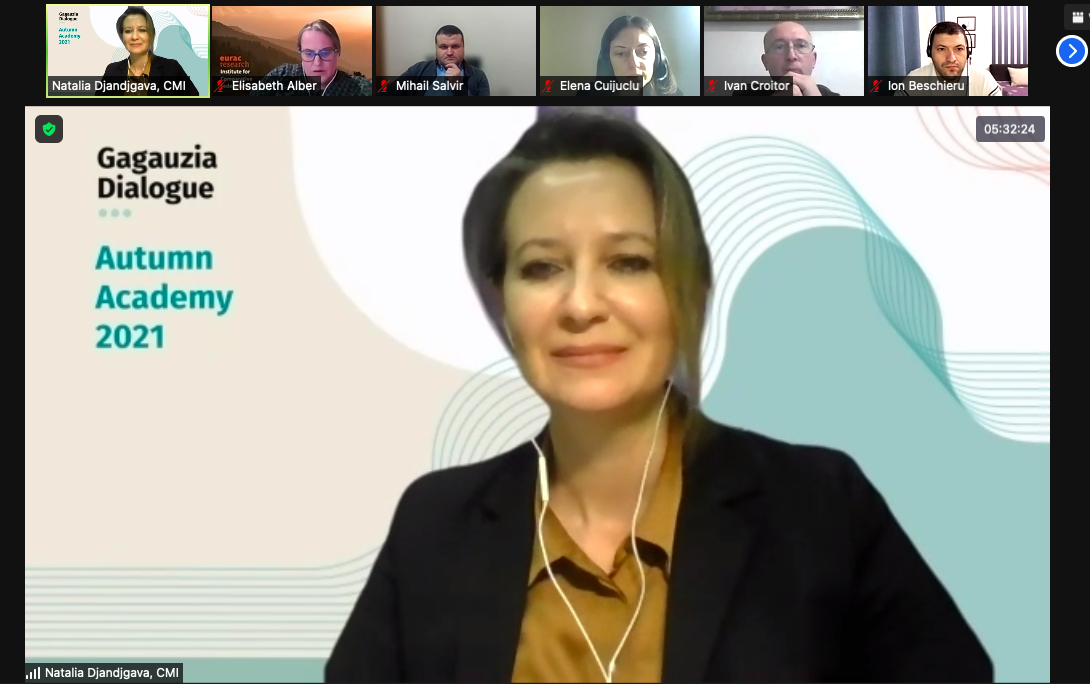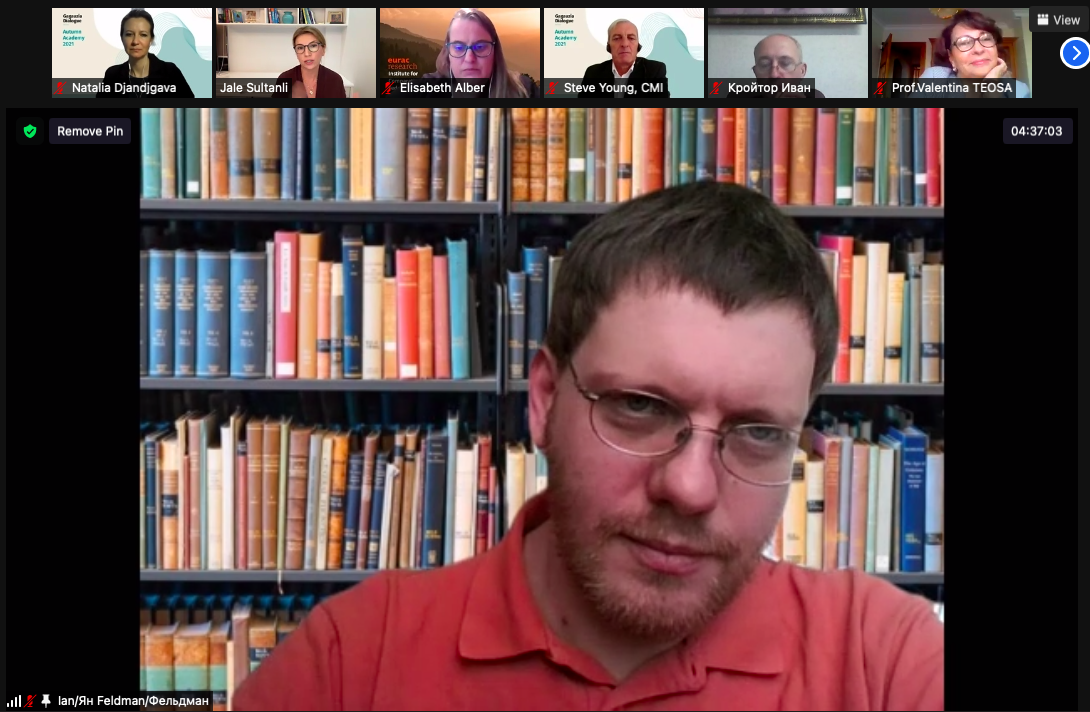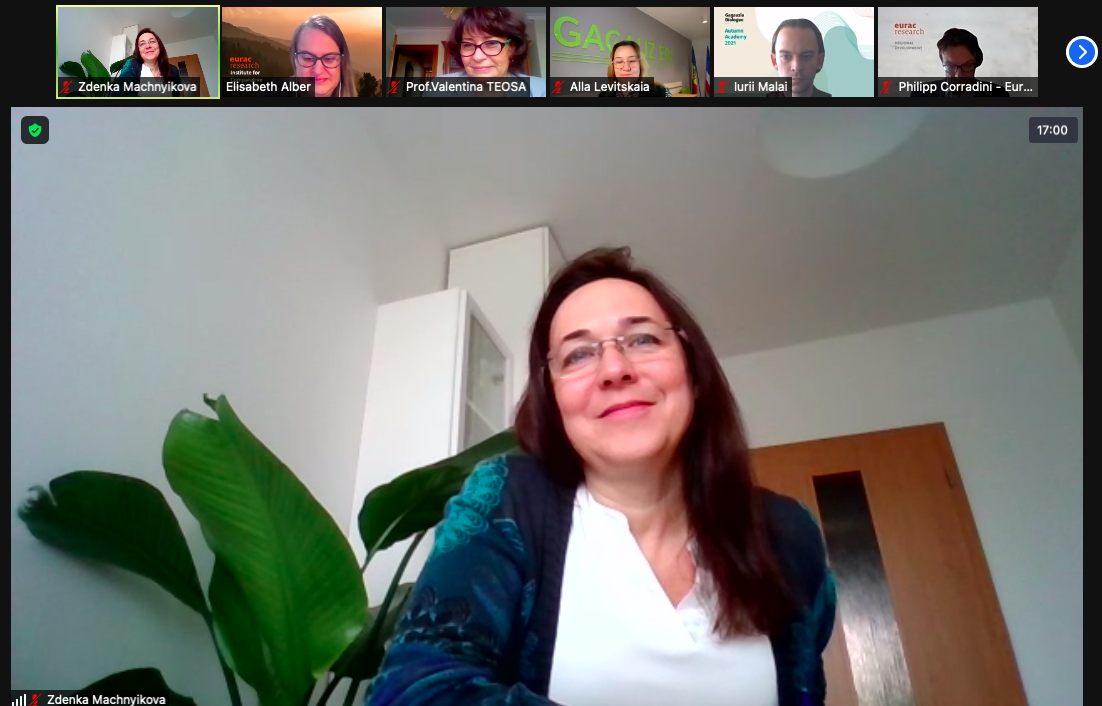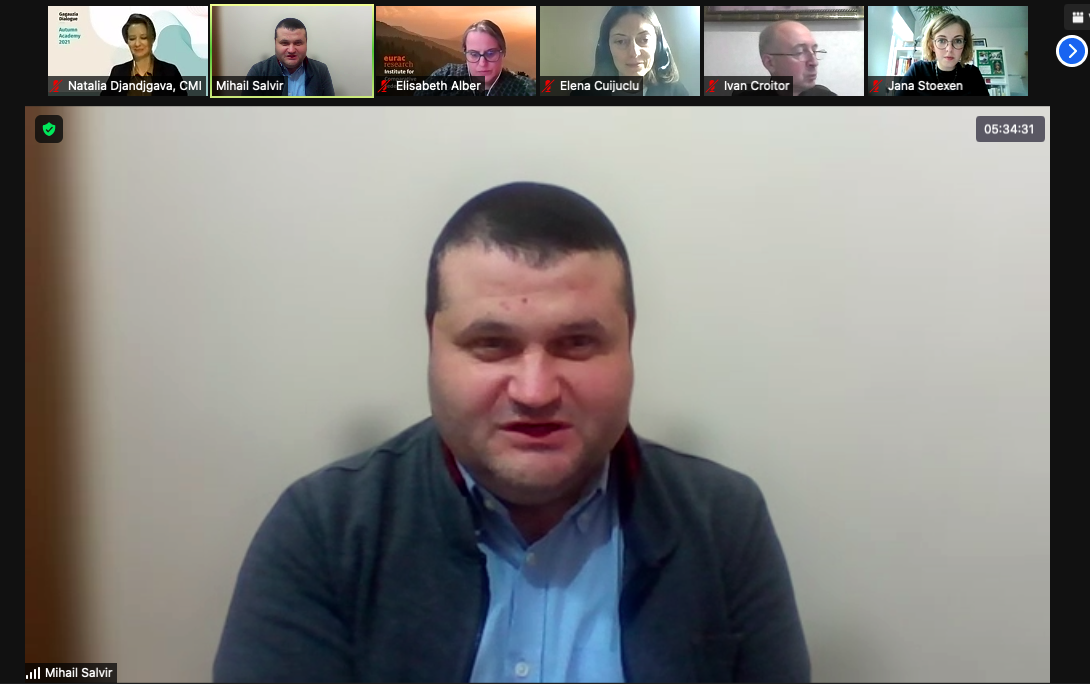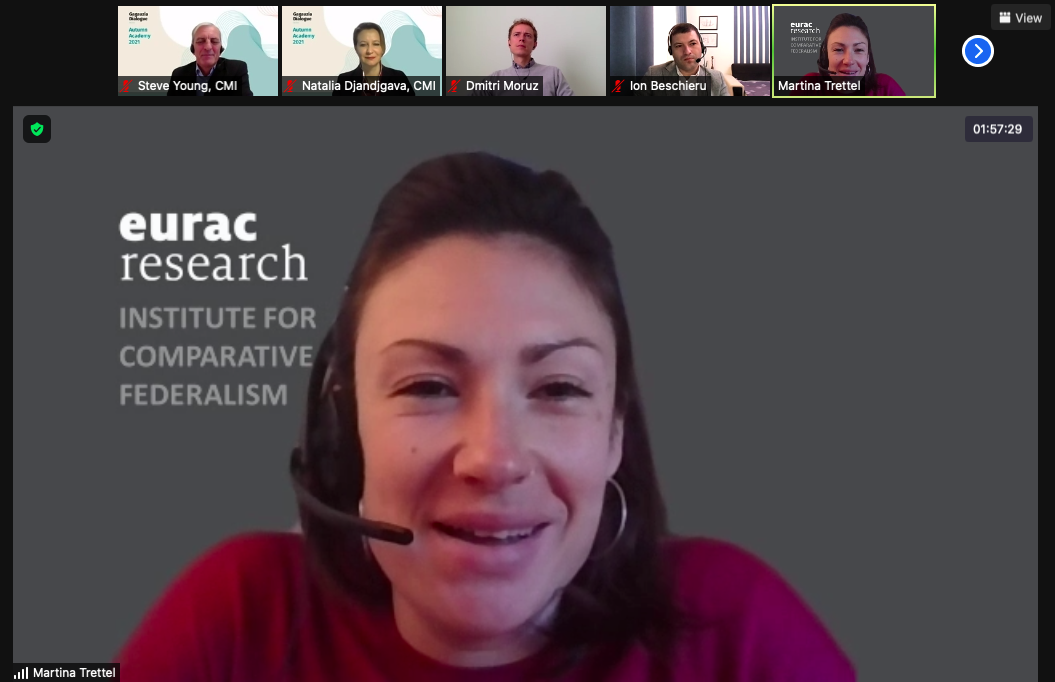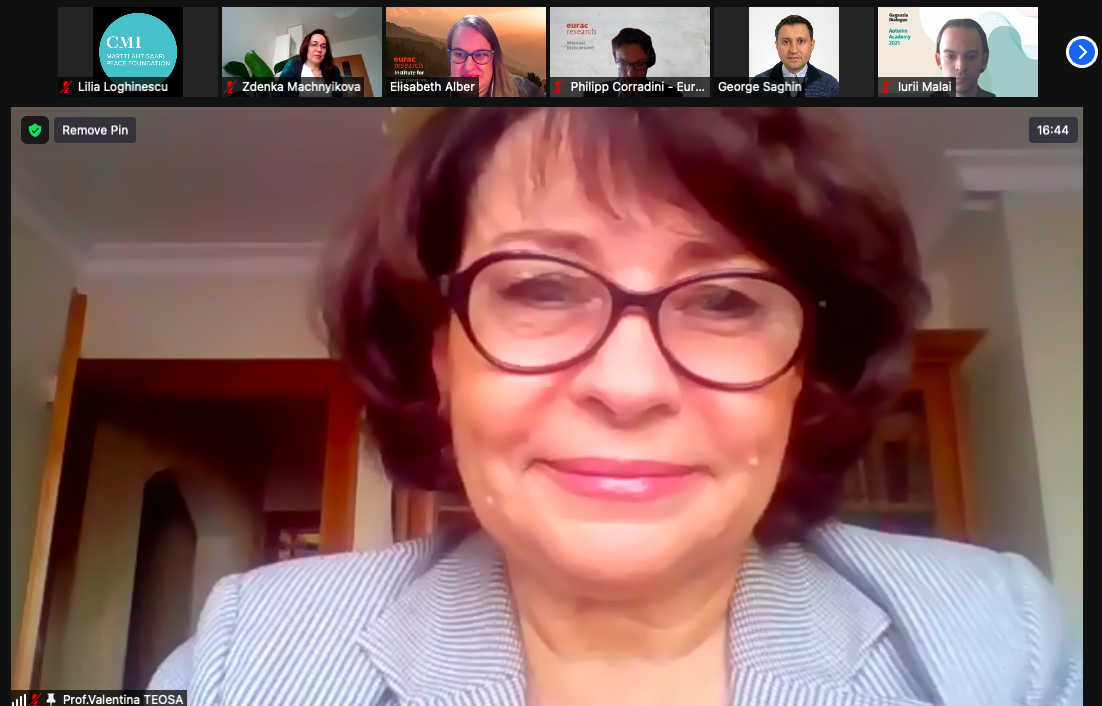Between 11 and 13 November 2021, the Autumn Academy “Decentralised governance and autonomies” was organised in online format by the CMI – Martti Ahtisaari Peace Foundation in partnership with Moldova State University, Comrat State University and Eurac Research, Bolzano/Bolzen, Italy. The event was attended by more than 40 professionals from public institutions, academia, experts, journalists and other civil society representatives.
During the Academy participants had the opportunity to learn about decentralised governance and centre-autonomy relations, international comparative cases of decentralised policymaking and reflect on lessons learned from the case of South Tyrol, Italy. Moreover, group work provided some networking opportunity for the participants, while they exchanged views and reflected on the local context from the perspective of international practice.
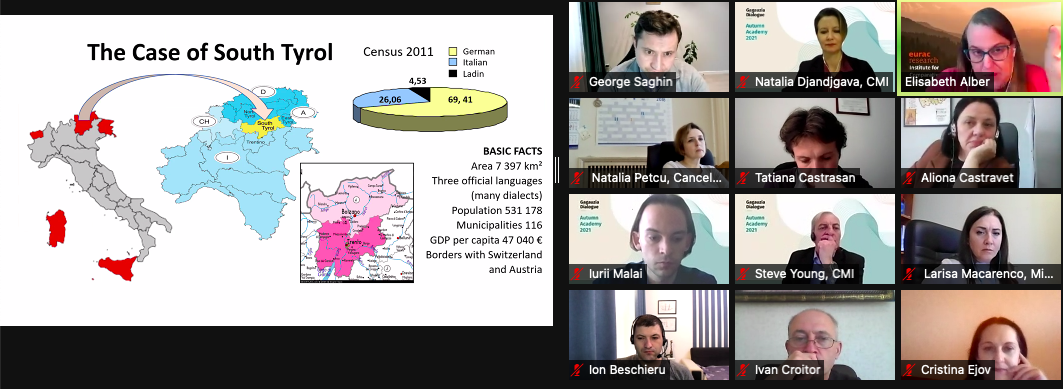
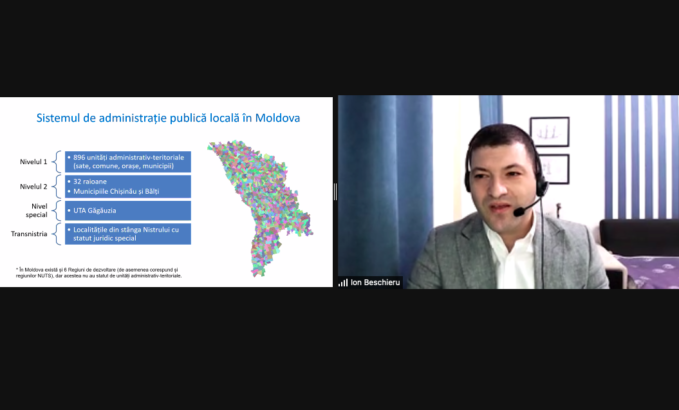
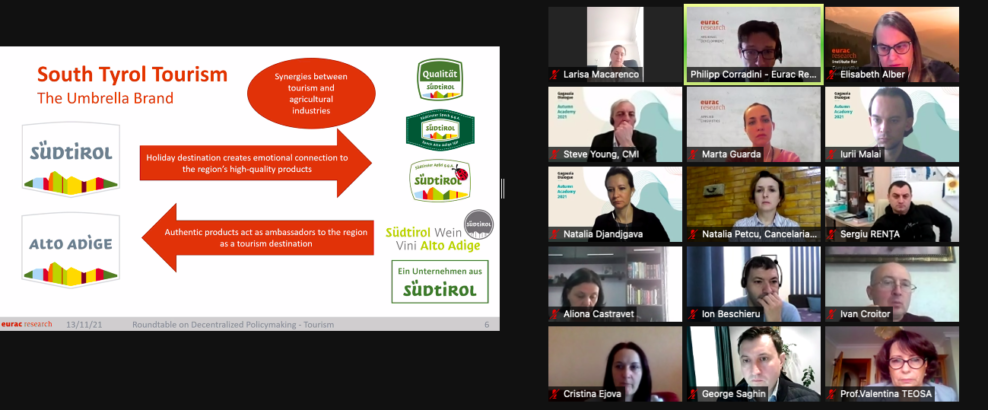
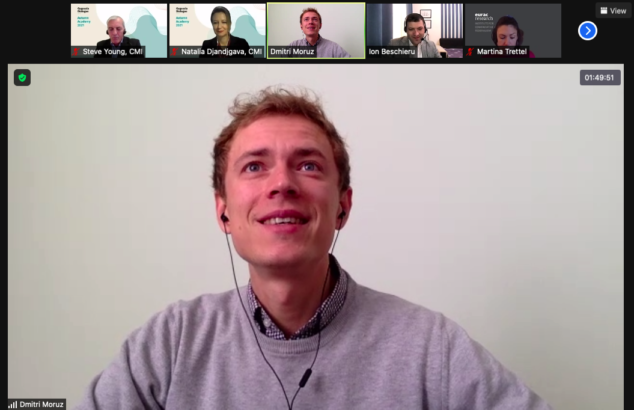
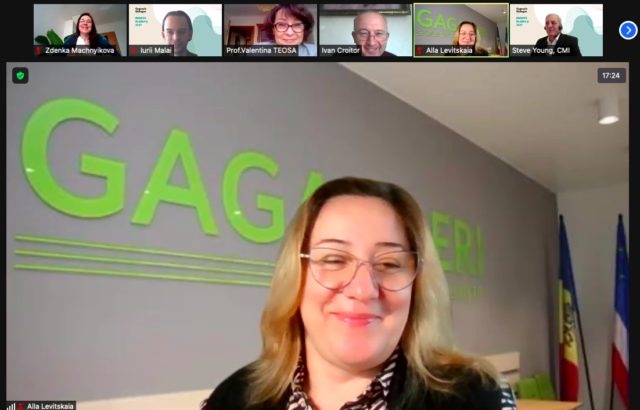
In her welcoming remarks, H.E., Ambassador of Sweden to the Republic of Moldova, Katarina Fried stated:
Sweden is a long-term development partner of the Republic of Moldova and a substantial part of our support is to contribute to the advancement of good governance at all levels of country’s administration. I hope the next 3 days will serve a good platform for all of us to discuss, share different perspectives and experiences and reflect on all the aspects that could further improve the power sharing between the center and various regions.
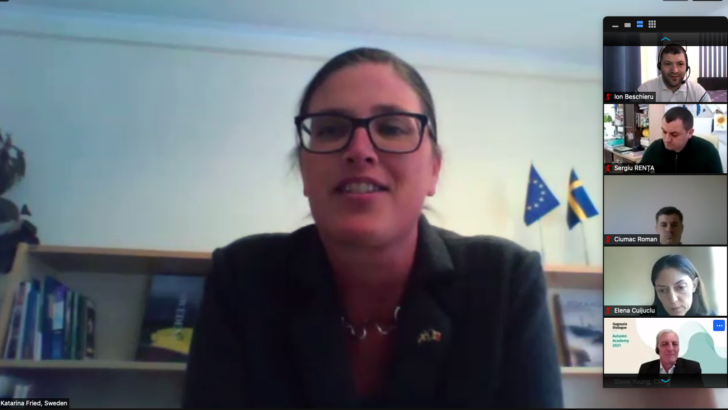
In turn, Steve Young, CMI – Martti Ahtisaari Peace Foundation Country Manager for Moldova, said:
The Autumn Academy brings together people from the executive level institutions and local authorities, academia, NGO’s and the media. The Academy’s scope is to enrich the knowledge on autonomies and decentralised governance. Also, to broaden the understanding on how an autonomy can function efficiently within the Republic of Moldova.
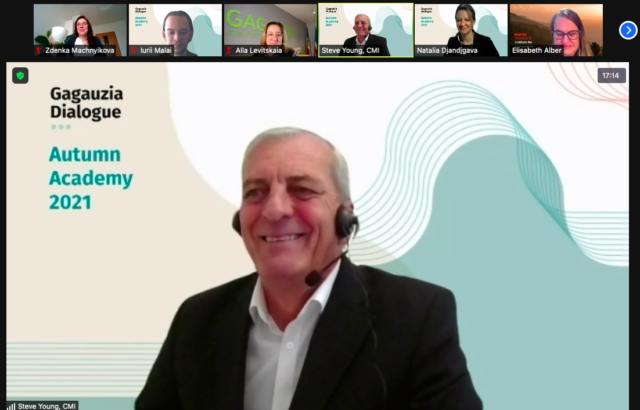
During the Academy the experts from Eurac Research, leaders in the field of autonomy issues, policymaking and minority rights, presented international practical experience focusing on the South Tyrol model. An e-Learning course entitled “Lessons from South Tyrol’s Autonomy Arrangements” was discussed during the Academy and the participants familiarised themselves on how the autonomy manages to balance the interests of different parties, how it relates to the national level in case of disputes and the tools used to manage issues related to minorities. Eurac experts also presented South Tyrols’ experience in policymaking in education, including multilingual education, tourism and culture development.
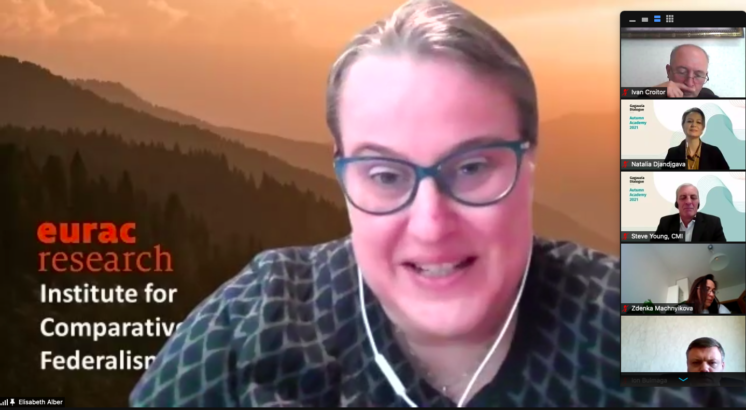
Within the Autumn Academy we discussed both international and Moldovan practices in decentralisation. As a rule, for decentralised governance to be effective well-designed institutions and trust-based, intergovernmental relations are needed. South Tyrol proves this. Its’ success story depends on three factors: trust, time, and adaptability, in relations between the language groups present in South Tyrol and between South Tyrol and Rome.
pointed out Elisabeth Alber, Senior Researcher at Eurac Research
At the end of the Academy some participants shared their first-hand impressions on the event expressing gratitude for the intense and extremely informative programme, and also reflecting on the application of the acquired knowledge in their professional lives.
The Academy helped me to understand that decentralisation should be encouraged and pursued, as the examples from European practice and the comparative analysis show that there is a link between the level of decentralisation of a country and the prosperity of a country. Effective decentralisation can contribute to economic development at local and national level.
Some of the participants also suggested that the topics of decentralisation, good governance and autonomies should be included in the curricula of relevant Moldovan higher education institutions.
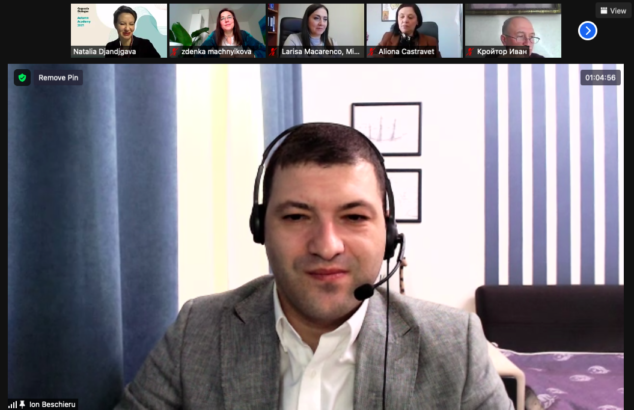
The Academy offered a good opportunity to discuss issues related to decentralisation with experts and young specialists from public administration, academia and civil society. Moldova has taken important steps towards administrative decentralisation and strengthening of local autonomy, but there are still many challenges that have to be addressed.
concluded Ion Beschieru, CMI Legal Advisor
The first Autumn Academy was organised in 2019 and was attended by more than 40 participants from all over the country, who also learned about autonomy arrangements and minority rights, decentralisation trends in European states with a comparative overview on sharing of powers, intergovernmental relations and mechanisms of conflicts resolution. The participants also paid a one-day visit to Comrat having a lecture at Comrat State University and meetings with the Executive Committee and People’s Assembly of Gagauzia. The Academy was followed by an international Conference that brought together a range of experts from various disciplines and provided the floor for substantive discussion on concepts of decentralisation, devolution and autonomy as a means of managing of states’ territorial and societal diversity and promoting good governance.

